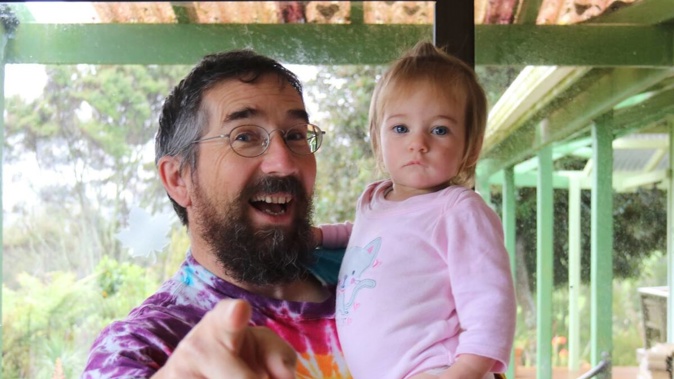
A man swept away and killed in floodwaters during the Auckland Anniversary weekend floods was out to dinner with his wife the night he died, the inquest into the disaster has heard.
Dave Young, a father and grandfather, was one of four men who died on January 27, 2023. He was swept away in the rural town of Onewhero when a stream burst its banks on Allen and Eyre Rd.
Counsel assisting bereft families told the inquest yesterday Young’s widow Jane Young believed her husband would not have died if an emergency mobile alert had been issued and they had been made aware of the danger.
Jane Young is expected to present her witness evidence later this week.
Today, while counsel assisting families cross-examined Waikato Civil Defence Emergency Management group controller Aaron Tregoweth on why a mobile alert was not sent, more details of the Youngs’ night have emerged.
They had been to a restaurant, which was filled with other diners, and nobody in the building was aware of anything “other than it was raining”, families’ counsel told the inquest.
“No weather alerts, such as text message warnings, were issued that evening,” counsel said.
“‘If we had received weather warnings, we could have come home earlier or not gone out at all. We were completely unaware of the danger. We just thought it was heavy rain and not a major threat to life and property that needed to be taken very seriously.”

Dave Young, a father and grandfather, was one of four men who died on January 27, 2023. Photo / Supplied
Tregoweth told the inquest he had done a “basic assessment” of the unfolding weather event, “and I did not think [the need] was met”.
Tregoweth said there was “a very high bar” for issuing a mobile alert, “we’re talking about a near-source tsunami, evacuate-now type information”.
There is a checklist to use for when an emergency mobile alert (EMA) should be issued. Tregoweth said the checklist reflected the seriousness of its use.
Tregoweth said this could be an opportunity to review whether the checklist and threshold for issuing an EMA was appropriate.
Julian Snowball, Waikato Civil Defence Emergency Management (Waikato CDEM) group controller, yesterday told the inquest an EMA would have gone out to too wide an area where warnings would not have been necessary that night.

"If we had received weather warnings, we could have come home earlier or not gone out at all," Dave Young's widow's evidence to the inquest is expected to say. Photo / Supplied
Jane Glover, counsel assisting bereft families, questioned this, given mobile alerts can be sent to specific areas.
Snowball said sending a mobile alert to a specific geographic area was more difficult in rural areas where there were fewer people and fewer cell towers.
He said the Waikato CDEM knew there was significant flooding happening, “so the potential for an emergency was there in terms of the severity ... but probably the most appropriate thing to do was to close the road [from where Young was swept away], not issue an EMA”.
“An EMA wasn’t sent out because it was not a widespread event [the flooding in Onewhero], but localised,” Snowball said.
“You couldn’t target a specific area in Onewhero without EMA overspill. I am pretty confident it could have gone to Tuakau and Port Waikato.”
He also said he believed the threshold for issuing a mobile alert was not met, and “even with the benefit of hindsight, I don’t think it was met”.
He conceded to Glover that the thresholds for issuing mobile alerts could be reviewed.
However, he questioned whether there would be appetite for it from the public, pointing to frustration from some just under a month ago when emergency alerts were issued early in the morning due to a tsunami threat from a magnitude 8.0 earthquake in Russia.
Snowball also yesterday admitted there were gaps in the information Waikato CDEM was receiving from police, St John, and Fire and Emergency New Zealand from on the ground.
“Decisions are made or not made [by Waikato CDEM] based on what you know.
“There were things the Waikato CDEM did not know at the time, or things they were told that were wrong,” he said.
Raphael Franks is an Auckland-based reporter who covers business, breaking news and local stories from Tāmaki Makaurau. He joined the Herald as a Te Rito cadet in 2022.
Take your Radio, Podcasts and Music with you









